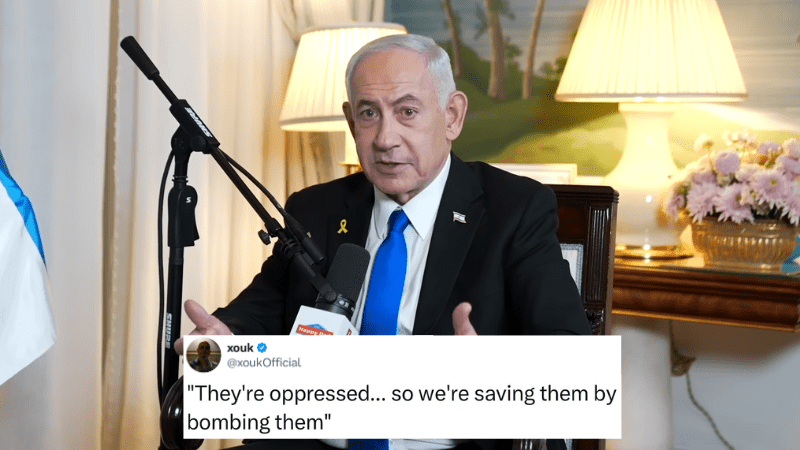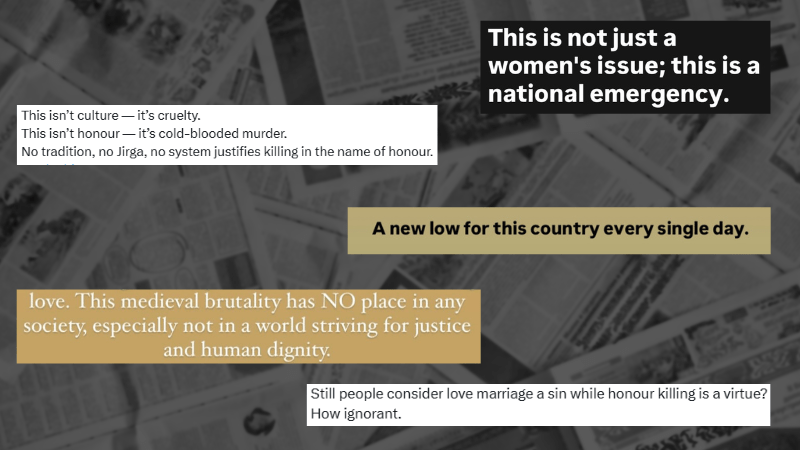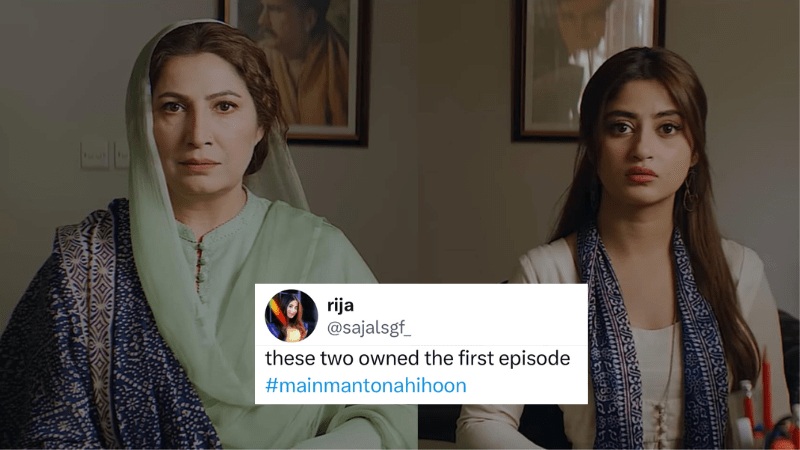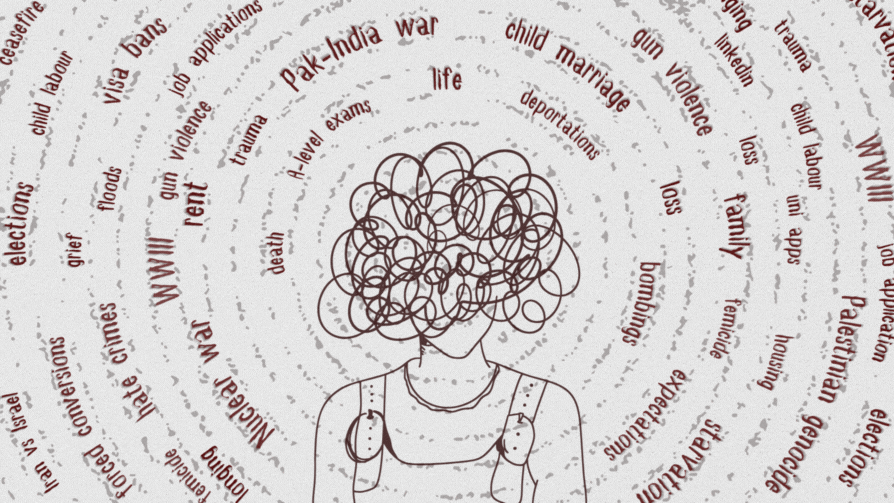In Sangat, the rapist is both hero and villain — and that's a problem
The Pakistani drama industry may have found its new favourite topic: rape.
We have to give TV producers credit for not shying away from addressing difficult social issues. In between the now routine doosri teesri biwi stories, the mismatched love affairs and soaps with 'mayka' or 'sasural' in their titles, there are always dramas with an original or challenging storyline.
Rape, in particular, is a highly important subject, given the steady rise of sexual assault awareness after the high-profile Nirbhaya case in neighbouring India and the steady stream of similarly tragic stories that haunt the Pakistani news cycle.
However, TV dramas often contribute to rape culture, rather than attempt to dismantle it. Hum TV's Sangat is an unfortunate example of this.
Sangat and its strange plot twist

Sangat is the story of Ashy (Saba Qamar) who is happily married to her college sweetheart Adnan (Mikaal Zulfikar). On a rare visit to her mother’s house, Ashy falls prey to her long-time admirer Shavez (Zahid Ahmed), who breaks in under the premise of a robbery and rapes her.
Ashy soon discovers that she is expecting a child and is forced to go through with the pregnancy by her mother. Neither her in-laws nor her husband suspect a thing and are ecstatic about the new addition to their family whom they name Sangat.
TV serials tend to follow an unfortunate formula in the treatment of rape: a happy family life is shattered and supposedly strong relationships are tested to breaking point. But a majority also try to portray the difficulties of the victim. One of the best dramas to explore this topic with the respect and gravity it deserves has been the award-winning drama, Roag.
Sangat, however, defies all norms (and logic) by trying to whitewash the rapist. Whatever commercial or clichéd faults dramas like Chup Raho or Main Gunehgaar Nahi had, one thing was for sure: the rapist was the bad guy.
The rapist in Sangat: Hero bhi, villian bhi?

In what seems like an attempt to appear “different”, Sangat sets up the rapist to be as much of a victim of cruel circumstance as his prey. So far into the story we have learnt he suffered as a child, was brought up by a single father and at one point his mother was robbed at gunpoint.
What's more, the TV serial imparts his character with a hero-like desirability. Despite the fact that he is known to be good-for-nothing goonda type, his landlady swears that though she isn’t sure what he does outside the house, he enters their home with a modestly lowered gaze.
If anyone were in doubt of this rapist’s complete sharafat, the writer has added the character of Salma, the lovelorn daughter of Shavez’s landlord who throws herself at him with monotonous regularity.
Salma and her family desperately try to trap our hero – oops, I mean villian – into marriage, but he steadfastly maintains that “Main kissee aur sey mohabbat karta hoon“ (I love someone else) in Zahid Ahmed’s no doubt sonorous voice.
False, dangerous messages in Sangat
12 episodes down and apart from Shavez’s 'love' for his victim, writer Zafar Mairaj has given us no clue why this misunderstood paragon would actually commit such a heinous act.
The audience is left to conclude that this rape was about unrequited, obsessive love rather than a particularly evil act of premeditated violence. The whole story feeds into the myth that rape is about sex or lust or attraction, when the overwhelming evidence from studies on this subject indicate clearly that it is about dominance, power, control and humiliation.
The seeds of repentance do not come from Shavez’s realization of the horror of his actions but from the pain he sees he has caused the woman he “loves”. The writer does a great disservice to victims of sexual violence by romanticizing the rapist and his motivations.
The drama does get one thing right, however: many rapists (but not all) are known to their victims, not strangers. Shavez is the son of an old colleague of Ashy's mother and his assault is a carefully planned attack disguised by the robbery.
Much of the drama is then taken up with Shavez's regret, his tears and his many contrived meetings with the unfortunate Ashy.
The story sets up a dangerously false equivalency between the perpetrator’s need for forgiveness and the victim’s need to recover, placing the burden of resolution firmly on the victim’s shoulders. The completely baseless idea that the victim can only be free to live her life if she forgives this man is insinuated throughout the story.
No respite for the victim, Ashy?

To be fair, the story does explore the victim’s painful recovery from the assault but again we are treated to the typical “zamana kiya kahey ga” mother so beloved of Pakistani dramas.
Despite being a highly educated woman of some wisdom and experience, Ashy’s mother oppresses her, warning her never to trust her husband or expect his support. Amazingly, Ashy cannot even bring herself to tell her mother the rapist’s identity.
Another beloved trope of Pakistani dramas is then dredged up in the form of the unreliable husband.
Ashy wants to share her terrible experience with her husband, but is cowed into silence when he thanks her for saving the “family’s honour”. He never wonders as to why his wife is so traumatised by an armed robbery, and seems more irritated bystander than loving husband, leaving Ashy so disappointed in him that she seriously considers leaving him.
The only person Ashy confides in is a psychiatrist who suffers from a huge compassion deficit and tells Ashy off for “distancing herself from her husband”.
She even asks Ashy whether she would forgive Adnan if he came to her after making a similar ghalti. Is rape just a ghalti, a mistake? Is suffering rape and asking for support equivalent to a man raping another person and asking for his wife’s support? Can a criminal and a victim command the same kind of empathy?
This mind boggling contradiction is presented to the audience as a moment of revelation and acceptance for Ashy, who now understands her strangely insensitive husband.
In contrast to Adnan’s unhelpful attitude, the writer allows the rapist Shavez to save Ashy and her child’s life by giving blood just at the right moment and reinforces this forced irony with dialogues like “Vo jis ka khoon aap ki ragho main daur raha hai" when referencing him.
Essentially the writer is building a case for the perpetrator’s acquittal from his crime, minimizing and mitigating his heinous actions. This story effectively emasculates the husband who is seen as obstructive, unhelpful and very possibly negative whenever he learns the truth.
Shavez has the universe on his side
In contrast to Ashy's plight, Shavez has a lot of help from the local Imam who gives him shelter and advises him on how to attain forgiveness. Ignorant of Shavez’s guilt, Ashy’s mother takes him under her wing and into her house, instead of using that time to focus on her daughter. Despite his disappointment in his son, Shavez’s father is always looking out for him, as is the ever hopeful Salma.
One is reminded of Paulo Coelho’s words “And when you want something, the entire universe conspires in helping you to achieve it." The Universe of Sangat is indeed conspiring to absolve Shavez of his guilt.
The strangest part of this story is that though Ashy looks at her attacker with contempt, she isn’t angry enough to confront him or even ask the most basic of questions: “Why did you do this?” or “Why me?”. Contrast this with the victims who fill the news risking life and limb begging for justice, while Ashy’s only demand is that Shavez get out of her life.
She will of course be punished for even that presumption of self-determination, and soon. In one of the most recent episodes, a desperate Ashy searches for Shavez as her child is in dire need of his blood for a lifesaving transfusion. However, this also drives home the point that once a woman carries her child with a rapist to term, her relationship with him will never end. In fact, it has just begun.
The team of Sangat
Director Kashif Nisar is no stranger to challenging material, having directed the award-winning Ullu Baraye Farukht Nahi. As can be expected from someone of his talent, he has managed to make a very compelling serial out of this flawed storyline and that is the real tragedy. Such a well-made serial should have been a great opportunity to raise awareness and inform the viewing public.
Saba Qamar is without doubt one of the industry’s better actresses and gives a rock steady performance as Ashy. Mikaal Zulfikar’s equally measured performance is the other saving grace. Sonia Mishal as Salma also manages to impress despite her clichéd role.
While Zahid Ahmed as Shavez works really well as the villain of the story, his performance as the penitent sinner lacks authenticity. When face to face with his prey, he may not be able to meet her eyes but away from her retains all the stubborn swagger of an overconfident man. True repentance requires humility, something sorely missing in Shavez’s character.
Perhaps the writer has blurred the lines so much that even Zahid Ahmed is confused; a recent post on his official Facebook page showed a picture of the masked Shavez with the completely inappropriate hashtag “#Herobhivillainbhi”. Hopefully this was a clueless admin and not the actor himself.
Missed opportunities
There are a lot of missed opportunities in Sangat. The OST is itself highly offensive ,with the lyrics 'Mera jism mera gunaah hai' (my body is my sin) and 'Maa e Maa sazaa hai sazaa hai' (oh mother, I am punished). It is the act that should be stigmatized; it is the perpetrator who should be punished. What a revolution it would be if instead of using these nauseating lyrics over the victim, they were played for the actual perpetrator.
Instead of playing to the audience’s worst fears and ignorance, the entertainment media should wake up to its responsibilities and think about enlightening and educating the masses.
Moreover, must every mother in every drama be as cruel and unfeeling as the ones in Sangat and Chup Raho? When will we see a woman who stands up for her child, if not in public then at least in private? When will we see a male character who is strong enough to support his wife through such a distressing life event? If we can have a repentant rapist, then why not a real man as a husband, one who despite his pain and misgivings, acts as his wife's covering?
Each time we reinforce such stereotypes, we do injustice to victims everywhere.










Comments